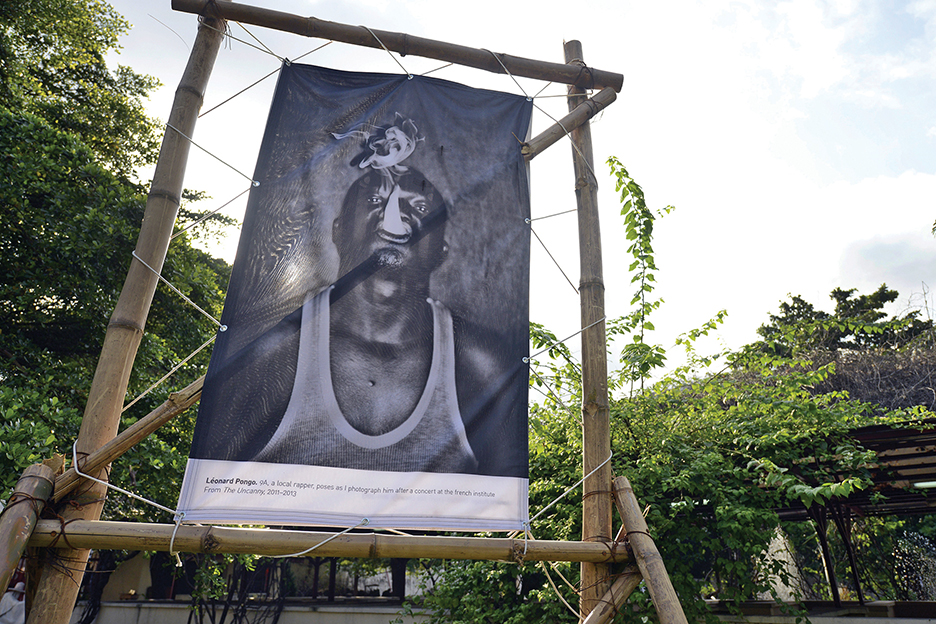AGENCE FRANCE-PRESSE
Since its inception five years ago, LagosPhoto has become one of the biggest photography festivals in Africa. The annual event tries to reflect life on the continent through the eyes of Africans, rather than just photographers from elsewhere.
In 2014, organizers turned to fantasy and fiction to encourage artists to go beyond showing the realities of daily life and worries about basic necessities. “The aim is to give Africa, Nigeria, Lagos — the city [and] its people — a voice,” said founder Azu Nwagbogu. “We want people to be able to tell their stories.”
Photos on vast canvasses held up by bamboo lined the paths of Freedom Park, a cultural center and green space in downtown Lagos. Similar prints were displayed in art galleries, a hotel and a fashion boutique in Nigeria’s economic capital.
At the Eko Hotel, in the Victoria Island area, Mary Sibande displayed her work, Long Live the Dead Queen, a series of photos featuring a female protagonist called Sophie. Sophie, a voluptuous black woman in a majestic blue Victorian dress and a housemaid’s starched white apron, is shown in fantastical images with grand accessories.
For the South African artist, whose female relatives all worked in service for three generations, the work is a way to ask questions about the role of women in African society.
Several Nigerian photographers are among the 40 artists who exhibited in 2014. Ade Adekola explored the belief in reincarnation in the Yoruba culture of the southwest. Jide Odukoya portrayed the life of Africa’s super-rich.
For Nwagbogu, who set up the African Artists’ Foundation, African storytelling through African eyes is a key driver of the festival that first began in October 2010.
In debates and workshops, young Nigerians have been encouraged to study the exhibits and exchange photos to develop a more critical eye on their own daily life.
“The goal is to keep reclaiming contemporary visual culture, to tell our own stories and to empower more people,” Nwagbogu said. “Photography is the most powerful [medium] because everyone can do it; everyone can get involved.”

